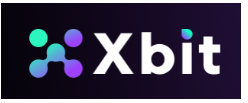Blockchain
IndraSoft Supported US Army Vaccine Distribution Program Receives FedHealthIT Innovation Award

IndraSoft, a leading technology consulting services firm, today announced that the U.S. Army Medical Materiel Agency’s (USAMMA) Distribution Operations Center has received a FedHealthIT Innovation Award for its exceptional initiative on using blockchain technology to track vaccine supply chain.
Award winners were determined by a panel of judges that included government and industry leaders who evaluated applicants from across the industry. Awardees were selected based on their innovative emerging technology solutions and ability to deliver tangible results in support of their mission.
Raj Lingam, President & CTO for IndraSoft said, “IndraSoft views blockchain as a transformative technology for secure supply chain solutions as well as other complex, distributed use cases. We have focused on developing our blockchain solutions to enable reliability, integrity and transparency for distributed transactions, particularly in trustless network environments. We appreciate this opportunity to drive greater automation, enable secure supply chain, create greater connectivity across defense supply networks, and improve transparency and traceability in vaccine supply chains for U.S. Army.”
USAMMA Distribution Operations Center Deputy Director Liz Andrews said, “Our goal was to explore, as a proof-of-concept, how blockchain-based supply chain management could potentially improve our operations and help us track shipments of temperature-sensitive medical products, such as vaccines, administered to deployed Soldiers and their families.”
Andrews explained that the team partnered with IndraSoft, Inc., which developed a vaccine-tracking point-of-contact application using blockchain technology. The project tested how this application might enable greater real-time inventory visibility while improving operational efficiency for multiple organizations, including the Department of Defense, the Defense Health Agency, and the U.S. Centers for Disease Control and Prevention.
“Our current system of record is functional but also very manual, and it does not provide visibility for all stakeholders,” Andrews explained. “In the future, a blockchain application could help us break down some of our supply chain silos and streamline integration with our customers worldwide.”
“I want to thank U.S. Army for providing IndraSoft with an opportunity to proudly support this program for almost five years and to be part of its modernization initiatives on secure supply chain. This award for the Vaccine Distribution Program further substantiates that true Government-Contractor collaboration and partnership is the foundation for executing innovative technologies,” said Karthik Srinivasan, COO for IndraSoft.
SOURCE IndraSoft, Inc.
Blockchain
Blocks & Headlines: Today in Blockchain – May 29, 2025 (Vaulta, Fosun, Signing Day Sports, Credit Unions, Gaming Innovations)

Welcome to Blocks & Headlines, your definitive daily briefing on the latest blockchain breakthroughs, cryptocurrency developments, and Web3 innovations. In today’s edition—May 29, 2025—we explore five pivotal stories shaping the decentralized economy:
- FT Analysis: Crypto Regulation and Institutional Adoption
- Signing Day Sports Seals Deal with Blockchain Digital Infrastructure
- Vaulta & Fosun Partner to Power Hong Kong’s Blockchain Backbone
- Transforming Online Gaming: Blockchain’s Next Frontier
- Credit Unions Embrace Blockchain for Trustworthy Financial Services
This op-ed–style roundup delivers concise yet insightful coverage, critical analysis, and expert opinion on each development’s relevance within the broader blockchain and cryptocurrency ecosystem.
1. FT Analysis: Crypto Regulation and Institutional Adoption
Overview. The Financial Times reports on evolving global regulatory landscapes and their impact on institutional cryptocurrency adoption. FT highlights how major funds and asset managers navigate compliance frameworks in the US, EU, and Asia to integrate digital assets into traditional portfolios.
Source: Financial Times
Detailed Analysis. As regulators across jurisdictions craft tailored guidelines—from MiCA in Europe to the SEC’s evolving crypto classifications in the US—institutions face a balancing act between innovation and compliance:
- MiCA’s Market Integrity Measures: New EU rules mandate clear disclosures for stablecoin issuers and exchange operators, raising the bar for consumer protection.
- SEC’s Custody Interpretations: Emerging guidance on digital asset custody models, including qualified custodians versus self-custody frameworks.
- Asia’s Sandbox Approaches: Hong Kong and Singapore expand sandbox programs, offering controlled environments for DeFi and tokenization trials.
Opinion. Regulatory clarity is the linchpin for institutional inflows. While stringent frameworks may seem burdensome, they ultimately foster market confidence and prevent systemic risks. Asset managers should proactively engage with policymakers, leveraging sandbox insights to shape pragmatic, innovation-friendly regulations.
2. Signing Day Sports Seals Deal with Blockchain Digital Infrastructure
Overview. According to TradingView’s Reuters feed, Signing Day Sports has executed a definitive agreement to acquire Blockchain Digital Infrastructure, a profitable data-hosting specialist serving DeFi and NFT platforms.
Source: Reuters via TradingView
Detailed Analysis. The acquisition underscores the rising value of specialized blockchain infrastructure:
- Scalable Data Nodes: Blockchain Digital Infrastructure operates 150+ high-throughput nodes, ensuring low-latency data delivery for real-time sports NFT drops.
- Profitability Metrics: The company reported $32 million in EBITDA last fiscal year, highlighting sustainable revenue in a niche market.
- Strategic Synergies: Signing Day Sports plans to integrate hosted nodes into its upcoming sports collectibles marketplace, guaranteeing seamless token minting during high-traffic events.
Opinion. In Web3, infrastructure is the invisible backbone. For NFT marketplaces and DeFi protocols, node reliability and data throughput directly impact user experience—and ultimately, revenue. This move positions Signing Day Sports to compete at scale, setting a precedent for vertical integration in blockchain hosting.
3. Vaulta & Fosun Partner to Power Hong Kong’s Blockchain Backbone
Overview. Coindesk reports that Vaulta, a leading digital asset platform, is teaming up with Fosun International to develop blockchain infrastructure for Hong Kong’s emerging crypto hub.
Source: CoinDesk
Detailed Analysis. The collaboration aims to build secure, high-performance rails for trading, custody, and tokenization:
- Layer-1 Interoperability: Joint development of a cross-chain protocol connecting Ethereum, Binance Smart Chain, and local DLT frameworks.
- Institutional Custody Solutions: Licensed trust entities under Fosun’s umbrella will offer insured cold-storage services for professional investors.
- Regulatory Cooperation: Partnership includes a liaison with the Hong Kong SFC to ensure compliance with the new Virtual Assets Service Provider (VASP) regime.
Opinion. Asia remains a hotbed for blockchain innovation, but regulatory fragmentation poses hurdles. Vaulta’s alliance with Fosun exemplifies public-private synergy—combining local market expertise, financial strength, and technical know-how to anchor the city’s digital asset ambitions.
4. Transforming Online Gaming: Blockchain’s Next Frontier
Overview. TronWeekly examines how blockchain technologies—especially NFTs and decentralized marketplaces—are redefining online gaming economies.
Source: TronWeekly
Detailed Analysis. Key trends driving gaming’s blockchain revolution:
- Play-to-Earn Economies: Games like Axie Infinity and emergent titles use tokenized rewards and NFT-based assets to create real-world value for players.
- Decentralized Marketplaces: Platforms such as Enjin and Immutable X offer gas-free trading environments for in-game items, enhancing liquidity.
- Cross-Game Asset Portability: Standards like ERC-1155 enable items to move seamlessly between compatible titles, fostering interoperability.
Opinion. Gaming is blockchain’s killer app. Beyond speculative hype, tokenization can democratize game economies, allowing genuine ownership and secondary markets. Developers must, however, tackle scalability and user onboarding frictions—layer-2 solutions and intuitive wallets are essential for mass adoption.
5. Credit Unions Embrace Blockchain for Trustworthy Financial Services
Overview. AP’s business coverage highlights several US credit unions piloting blockchain-based platforms to enhance transaction transparency, reduce settlement times, and cut cross-border remittance fees.
Source: AP News
Detailed Analysis. Examples of credit union blockchain pilots:
- Consortium-Led DLT: A consortium of midwestern credit unions uses a permissioned Hyperledger Fabric network to settle inter-credit-union payments in near real-time.
- Remittance Solutions: Deployment of Stellar-based rails reduces remittance costs by up to 60%, benefiting diaspora communities.
- Member Identity Management: Verifiable credential systems streamline KYC processes, reducing onboarding time from days to hours.
Opinion. As community-focused institutions, credit unions can leverage blockchain to reassert their value proposition—offering cost-effective, transparent services that rival large banks and fintechs. Success will hinge on member education and seamless integration with legacy core banking systems.
Central Themes
Today’s dispatch reveals five core themes:
- Regulatory Engagement: From FT’s analysis to Hong Kong’s VASP regime, clear rules underpin institutional and retail growth.
- Infrastructure Control: Signing Day Sports’ acquisition and Vaulta’s Fosun partnership demonstrate the premium on reliable blockchain rails.
- Economic Innovation: Play-to-earn gaming and credit union pilots show tokenization’s real-world impact.
- Interoperability Focus: Cross-chain protocols and ERC-1155 standards drive seamless Web3 experiences.
- Market Confidence: Institutional adoption and compliance frameworks foster long-term trust.
Conclusion
In today’s Blocks & Headlines, we see blockchain’s evolution from experimental playground to enterprise-grade infrastructure: regulators clarify, institutions invest, communities adopt, and developers innovate. Whether you’re tracking regulatory shifts, infrastructure deals, gaming revolutions, or financial cooperatives, the decentralized ledger continues to reshape industries.
Join us tomorrow for Blocks & Headlines, where we continue to unpack blockchain’s latest breakthroughs—one block at a time.
The post Blocks & Headlines: Today in Blockchain – May 29, 2025 (Vaulta, Fosun, Signing Day Sports, Credit Unions, Gaming Innovations) appeared first on News, Events, Advertising Options.
Blockchain
XDC Network Partners with Bitso Business to Power Cross-Border Payments from the U.S. to Mexico
Blockchain
XBIT DEX Exchange Reshapes the Crypto Trading Ecosystem with Ethereum’s Pectra Upgrade
-

 Blockchain Press Releases18 hours ago
Blockchain Press Releases18 hours agoRain Expands Support to Solana, Tron, and Stellar, Enabling More Partners to Launch Stablecoin-powered Card Programs
-

 Blockchain Press Releases7 days ago
Blockchain Press Releases7 days agoWSPN Launches New Website, Unveiling Enhanced Vision for Next-Generation Stablecoin Infrastructure
-

 Blockchain Press Releases7 days ago
Blockchain Press Releases7 days agoCompass Mining Partners with Synota’s “Impact Mining” Initiative to Transform Bitcoin Hashrate into Community Impact
-

 Blockchain Press Releases7 days ago
Blockchain Press Releases7 days agoBybit Card Rolls Out New Lucky Draw for Guaranteed Wins Including a Tesla
-

 Blockchain6 days ago
Blockchain6 days agoBioSig Technologies, Inc. Signs Definitive Share Exchange Agreement with Streamex Exchange Corp. to Launch First-Mover Real-World Asset (RWA) Tokenization Company Bringing Commodity Markets On-Chain.
-

 Blockchain Press Releases3 days ago
Blockchain Press Releases3 days agoCoinW Teams Up with Superteam Europe to Conclude Solana Hackathon and Accelerate Web3 Innovation in Europe
-

 Blockchain Press Releases3 days ago
Blockchain Press Releases3 days agoFlipster Reveals Middle East Expansion Plans and Appoints Regional Leadership to Bolster Crypto Trading
-

 Blockchain2 days ago
Blockchain2 days agoBlocks & Headlines: Today in Blockchain – May 27, 2025 Featuring Blockchain.com, Bilal Bin Saqib, XRP Ledger, Unstoppable Domains, ReNEW, MEXC Ventures













































